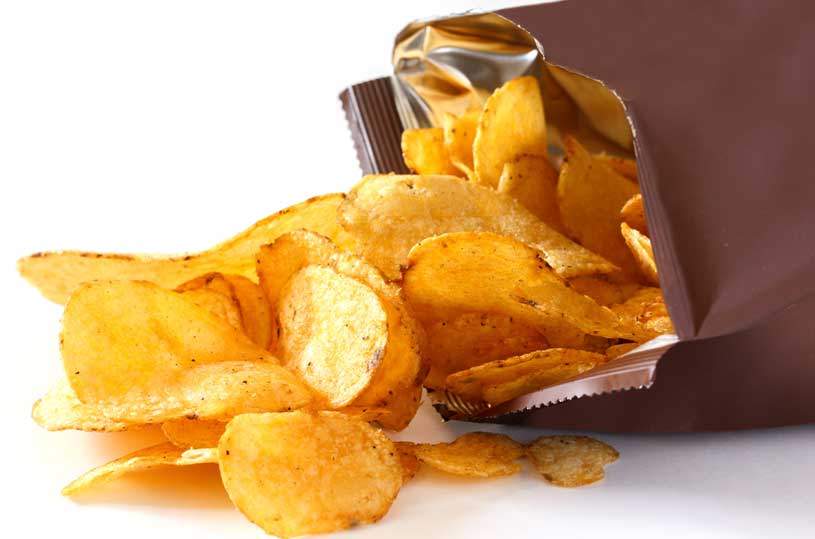
Opening Packets and Boxes
Chazal permitted one to cut open palm-weave baskets on Shabbos. These were disposable containers made of palm leaves, which were only used to ripen dates which had not reached maturity. Since this kli (vessel) had no intrinsic value it was considered batel (subservient) to its contents – the food inside, and thus one was permitted to cut it. Just as one may break or tear the peel or shell of a fruit or nut, so too one may cut the palm-weave basket to get the dates out.[1]
From this we can surmise that one may open packets of sugar or drinks in cartons, as well as plastic bags and the thin foil covers on top of leben and other dairy product containers. One may tear open chocolate wrappers and wafer packaging, since the paper torn is meant to be thrown out and is therefore batel to the food inside.[2] Even if the package is relatively large and the contents will last several days before the package needs to be thrown out – such as a bag of milk or a bag of sugar – one may still open it.[3] However, if one intends to make a neat opening in the package, in order to be able to use it for other purposes after the current contents finish, this is prohibited – in such a case, one may not open the package at all.
Furthermore, one may make a hole in the top corner of a bag of milk through which to pour the milk. One may open large plastic bags of toffees and other treats, since these types of bags have no intrinsic value and cannot be re-used after the contents are finished. Therefore, one may make a neat opening (such as in the milk bag) in order to take out the contents before eventually throwing them out.
It is also permitted to open plastic packaging containing other things needed for Shabbos, such as toilet paper or diapers. In these instances it is correct not to make a neat opening – less neat than what one would normally make on a weekday. Some rule that one may not tear open these types of containers unless one tears them to pieces, making them unfitting even to hold their actual contents.[4]
One must be careful not to tear over lettering when one is opening packaging. Nevertheless, at a time of need one may open them even though this will definitely cause some lettering to be torn (which would normally be considered mochek – erasing).[5]
Some Poskim[6] are more strict on all of the above, ruling that one may only make an opening in something which is not an integral part of the container itself – such as the lid of a barrel mentioned in the Gemara Shabbos (146a) which was plastered on top of the barrel. However, one who makes an opening in the container itself is effectively making a kli, and hence one would not be allowed to open bags of sugar or milk or other containers in which the food remains for a while. The reasoning is: since one is making a neat opening in the container through which one can put in and take out food or drink, one is thereby making a kli, not destroying a kli. These opinions hold that one may only open these types of containers in a way which destroys the container entirely (which also necessitates transferring the contents to a different container). However, containers which are usually thrown out immediately – such as sachets of sugar, may be opened even according to these opinions.[7]
Some[8] write that it is proper to follow the strict opinion, hence one would need to open most packaging before Shabbos. If one needed to open a bag of milk on Shabbos, one would need to make the hole smaller than one would normally make it on a weekday, or to tear the hole with one’s teeth. In this manner a person is showing that he does not intend to make a neat opening, and several of the stringent opinions would agree that it is permissible.
Notes and Sources
[1] Shabbos 146a, Shulchan Aruch 314:8
[2] Shemiras Shabbos 9, note 10, 11. Igros Moshe Orach Chaim I, 122:9. Kaf Hachaim 314:38. Minchas Yitzchak 4:82, 36
[3] Rav Shlomo Zalman Auerbach, Binyan Shabbos 34
[4] Rav Shlomo Zalman Auerbach, Shulchan Shlomo 314:7, 6
[5] Shemiras Shabbos 13:51
[6] Chazon Ish 51:10
[7] Chazon Ish 61:2
[8] Igros Moshe Orach Chaim I 122:9, Rav Ovadia Yosef shlit’a in Yabia Omer, Halichos Olam 4, Shemiras Shabbos 9:1.
